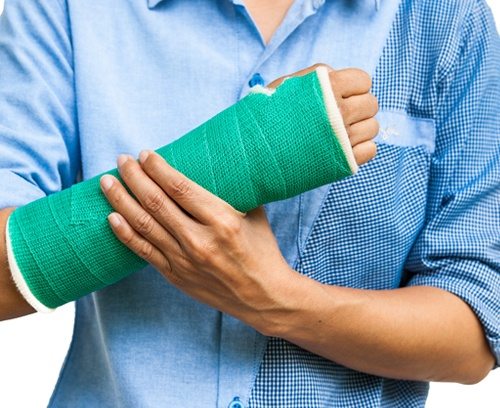
Car accidents can happen at any time, but certain periods carry a higher risk than others. Understanding the peak time of day for car accidents can help you stay safe on the roads and make informed decisions about when to travel.
If you’ve been injured in a car crash, talk to an Orlando car accident attorney at the Martinez Manglardi personal injury law firm. Call 407-846-2240 for a free consultation. The Martinez Manglardi personal injury law firm has been serving clients in Orlando and the surrounding areas for over 35 years. Convenient locations throughout Central Florida.
The Most Dangerous Time of Day for Car Accidents: A Closer Look
According to data collected by the National Highway Traffic Safety Administration (NHTSA) and analyzed by Forbes Advisor, the most dangerous time of day for car accidents varies depending on the day, month, and state. Let’s start by examining the national trends before diving into specific regions.
National Trends: Peak Times for Fatal Crashes
On a national level, the peak time of day for car accidents with fatalities is between 6 p.m. and 7 p.m., particularly on Saturdays throughout the year. This finding aligns with the NHTSA’s overall analysis, which highlights the significance of the late afternoon and early evening hours. However, the peak time for fatal crashes can shift throughout the year, revealing interesting patterns.
Spring and Summer Peaks
During the spring and summer months, fatal crashes tend to peak between 8 p.m. and 11:59 p.m. This timeframe coincides with increased recreational activities, longer daylight hours, and potentially more impaired drivers on the road. As the sun sets and the night progresses, the risk of accidents rises.
Fall and Winter Peaks
Conversely, from November through March, the peak time of day for car accidents for fatal crashes shifts to the hours between 4 p.m. and 7:59 p.m. Factors such as inclement weather, reduced visibility, and rush hour traffic contribute to the heightened risk during these months. It’s crucial to exercise extra caution and adjust your driving habits accordingly.
Understanding Weekly Trends: Weekdays vs. Weekends
Analyzing accident trends throughout the week reveals interesting patterns that can help us better understand the root causes of accidents. While weekdays and weekends both carry risks, the nature of these risks differs significantly.
Weekday Risks: Nonfatal Crashes and Rush Hour Challenges
On weekdays, the number of nonfatal crashes tends to be higher than fatal crashes, with Fridays witnessing the highest occurrence. This finding suggests that while accidents may be more frequent during rush hour periods, they are often less severe. Factors such as increased traffic volume, driver fatigue, and distractions play a significant role in these incidents.
Weekend Risks: Fatal Crashes and Potential Factors
Weekends, on the other hand, present a higher risk of fatal crashes. Saturdays consistently emerge as the most troublesome day for recorded road fatalities across the country. In a staggering 40 states, Saturday holds the unfortunate title of the most dangerous day. Fridays and Sundays follow closely behind, with slightly lower fatality rates.
While the Forbes Advisor study does not delve into the specific reasons behind the increased risk on weekends, several factors may contribute to this trend. Firstly, more people are on the road, enjoying their days off and engaging in recreational activities. This increased traffic volume alone raises the likelihood of accidents. Additionally, driver behavior may be influenced by a perceived relaxation of rules and vigilance during weekends. Factors such as alcohol consumption and other impairments could also contribute to the heightened risk.
Staying Safe: Tips for Drivers
Now that we have explored the peak time of day for car accidents, let’s discuss practical tips that can help drivers stay safe regardless of the time they’re on the road. Implementing these strategies can significantly reduce the risk of accidents and protect both yourself and others.
1. Practice Defensive Driving
Defensive driving techniques are crucial in mitigating risks on the road. Maintain a safe distance from other vehicles, stay alert, and anticipate potential hazards. By being proactive and cautious, you can react swiftly to unexpected situations.
2. Avoid Distractions
Distracted driving is a leading cause of accidents. Keep your attention focused on the road and avoid activities that divert your attention, such as texting, eating, or adjusting the radio. Remember that even a momentary distraction can have severe consequences.
3. Observe Speed Limits
Speeding significantly increases the likelihood of accidents. Adhere to posted speed limits and adjust your speed based on road conditions. Remember, it’s better to arrive safely a few minutes later than to risk your life by speeding.
4. Buckle Up and Secure Passengers
Seat belts save lives. Ensure that all occupants of your vehicle are properly restrained. This simple action can significantly reduce the risk of severe injuries or fatalities in the event of an accident.
5. Avoid Impaired Driving
Never get behind the wheel if you’ve consumed alcohol or drugs. Impaired driving is not only illegal but also extremely dangerous. Use designated drivers, public transportation, or rideshare services if you’re unable to drive sober.
6. Stay Informed about Weather Conditions
Weather conditions can drastically impact road safety. Stay updated on weather forecasts and adjust your travel plans accordingly. If necessary, postpone your trip until conditions improve to avoid unnecessary risks.
7. Plan Ahead and Allow for Extra Time
Rushing increases stress levels and encourages reckless behavior. Plan your journeys ahead of time and allow for extra time to reach your destination safely. This approach will help you remain calm and focused on the road.
8. Regular Vehicle Maintenance
Regular maintenance is essential for ensuring your vehicle’s safety and performance. Check your tires, brakes, lights, and other vital components regularly. Address any issues promptly to prevent potential accidents caused by mechanical failures.
9. Be Mindful of Pedestrians and Cyclists
Drivers must share the road responsibly with pedestrians and cyclists. Always yield the right of way and exercise caution when approaching crosswalks, intersections, and bike lanes. Remember, vulnerable road users require extra attention and care.
10. Seek Legal Assistance When Needed
In the unfortunate event of a car accident, seeking legal assistance is vital to protect your rights and navigate the complexities of insurance claims. A car accident attorney can provide expert guidance and work to secure the best possible settlement for your case. Call 407-846-2240 for a free consultation with the Orlando car accident attorneys at the Martinez Manglardi personal injury law firm.





